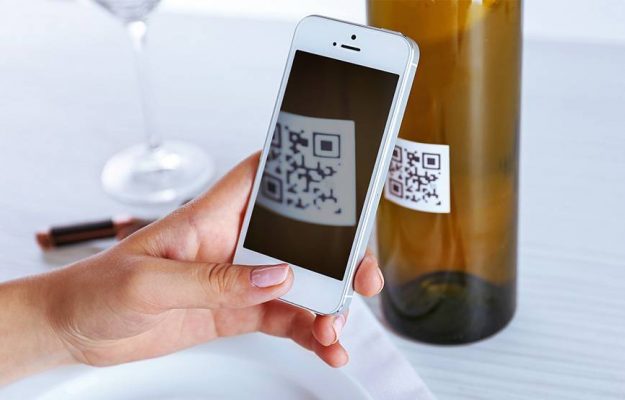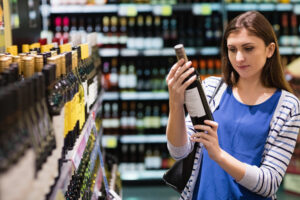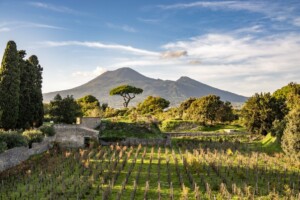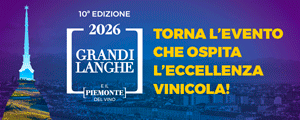Even wine, after years of discussion and debate, will be forced, from December 2023, to communicate the ingredients on the label, just like all other agro-food products. A challenge taken up by the sector that has been able to find a solution capable of transforming an obligation into an extraordinary opportunity. The solution is technological: the QR Code, which offers the possibility of hosting, on a web page easily accessible to the consumer, all kinds of information, much more than those required by EU regulations, making wine the most avant-garde sector in the field where it was historically at the bottom of the list. The U-label project, signed by Ceev - Comité Vins and supported in Italy by Federvini and Unione Italiana Vini, the two most important associations of the Italian wine industry, is at the center of “Wine & Information Digitization”, a round table held today at Vinitaly (in Verona until April 13), explained and narrated by Paolo Castelletti, secretary general of Unione Italiana Vini, Vittorio Cino, managing director of Federvini and Ignacio Sanchez Recarte, secretary general of Comité Vins, together with Paolo De Castro, rapporteur of the reform on the system of Geographical Indications at the EU Parliament, which has a lot to do with labeling, Luigi Polizzi, managing director for the promotion of quality at the Ministry of Agriculture, and Sandro Sartor, president of Wine in Moderation.
“What we are facing is a change in EU legislation proposed by the wine industry, which requested the possibility to use a U-label to list ingredients. A process that led to the adoption of the new regulation in December 2021, but it will only come into force in December 2023. The advice, however, is to start using the new label as of today, because the supply chain will not be able, otherwise, to respond to the needs of the supply chain”, begins Ignacio Sanchez Recarte, presenting the U-Label platform in all its facets. “For wine, this is an opportunity to be defended, because it is the sector that benefits most from the strength of the single market, and having a single label for the entire EU is a fundamental aspect, which digital can only strengthen. Companies will be able to communicate more relevant information to consumers, without putting everything on the label. Moreover, with digital, if there is any information to be corrected or added, it can be done simply online, not by re-labeling the bottle. Another fundamental aspect is that consumers can see the information in their own language, and they will be sure that the information online will be truthful: more than 80% of consumers, in fact, look for information about the products they drink or eat on the internet, where accuracy does not exist. There is obviously a need for harmonization of rules and information, and this is also what the U-Label platform is for”, continues the general manager Ceev.
“The EU, on the e-label of wine, has given a few simple guidelines: no marketing, direct link from the bottle and no consumer tracking. Companies, therefore, can indicate everything on the label, create their own digital system or join a collective system. And that's what we have done, thus ensuring an economic benefit, because we share the development costs, a structural benefit, because this way we interconnect existing databases, and a legislative benefit, having all a shared regulation”, continues Sanchez Recarte. “What does the U-Label propose? First of all, it is intended for wines, aromatized wines and spirits, it is open to everyone, EU and non-EU companies, Ceev associated or not, it offers legal expertise, automatic translation in all languages spoken in the EU, it provides an e-label and a QR Code created by the platform with the link that is accessed from the bottle. An e-label - recalls Recarte - is a label that, instead of being printed, is hosted by a web page, with relevant information on a product that can be accessed free of charge. Mandatory information includes identification, ingredient list, nutrition declaration and responsible consumption messages; permitted information is on claims regulated by EU laws, sustainability, responsible consumption and external links to the company's website; the only prohibited information is on marketing. Finally, the reference language is used by U-Label as the basis for automated translation of the information into the other 23 official EU languages”, concludes Recarte.
“Companies are ready, after all it is what they have been clamoring for, and we know that the consumer is just as ready. Speaking of ingredients and nutritional aspects, the obligation will come into effect on December 8, 2023, wine is a pioneer in digitization, and we will be able to give complete and true information in a way that is even better and more complete than any other food product. It is a project on which many companies are already working, also because there will be no extension to the scheduled time, but it is important that there is a massive adhesion to this platform, also because it is not difficult at all, and it allows in few minutes to transfer information in 23 official languages of the EU. It is a good political message from the sector, which has tackled the labeling issue in a compact and intelligent way, being ready”, said Paolo Castelletti, secretary general of Unione Italiana Vini (UIV).
“The moment we thought of anticipating the times with respect to the labeling issue, someone thought it was a way to hide information, a criticism that we return to sender, because digitization is the present and the future of our Europe”, adds Vittorio Cino, Federvini dg. “With the pandemic, the QR has become a tool of daily use, both for young and older people. U-Label makes information even clearer, otherwise illegible in a back label. The theme of sustainability is fitting: in January the packaging recycling label will come into force, and we will be able to put it inside the QR Code, avoiding the proliferation of labels and stickers. And then there is the aspect of responsible consumption, because with short and simple indications we can provide immediate and visual elements of basic information. At that point, it will be the informed consumer who will make his or her own choice, because it doesn’t make sense to tell the consumer what he or she should or should not eat”, concludes Vittorio Cino.
“We didn’t have and don’t have any options, because a different label for each country would have meant throwing away the principles of the European common market”, explains Sandro Sartor, president of Wine in Moderation. “We have two years of trial, which companies must use to adapt and adjust, as well as consumers. The battle must be won by starting early, with an information campaign aimed at the consumer, so that he too can say that it is much more than a label. We had the possibility of not saying the ingredients, communicating less than other sectors, and suddenly we are the ones who communicate the most, and with the best technology. It's an opportunity to win, because being the top wine producer in the world gives us the responsibility of leadership. In this sense, responsible consumption plays an important role: we must scientifically demonstrate the difference between consumption and abuse. We have to take sides against abuse, without being afraid to say it is bad for you, not positioning ourselves on the gray spaces, otherwise we lose credibility. In the U-Label the message “Wine in moderation” is compulsory, but there is another wording that I invite companies to share: “alcohol abuse can cause damage to health”.
That of the U-Label platform is a good example of how, when the world of wine, both Italian and European, plays as a team, it succeeds in finding effective and improving solutions. An approach that will serve again, on the many tables still open in the EU, in a “positive moment, with a return of enthusiasm, after two years of the pandemic, clouded by the winds of war”, as Paolo De Castro, Coordinator Socialists & Democrats Agriculture Commission at the EU Parliament, recalls. “The teamwork, contrary to the image painted by the newspapers, is bearing fruit. In Brussels, the debate on the reform of the system of Geographical Indications offers us opportunities as well as critical issues. The reform proposal is dated March 31, we will vote not before September/October, so there is plenty of time to improve and correct it. This is the first time that the EU, with 89 articles, has put down on paper the principles of European quality, of which wine is the most important part: it is no longer a question of cultural curiosities, as at the “Millennium Round” in Seattle in 1999 (the historic summit of the World Trade Organization, ed.), today we are at 75 billion in value at European level, of which 17 in Italy, with 10 going abroad, equal to 20% of exports in the sector. We have the opportunity to rewrite the rules, we want a strengthening of the role of Consortia, greater protection of GIs, and it is our responsibility to play this opportunity well. Working in synergy with France, Spain and Portugal, which means getting 90% of the votes in the Agriculture Commission. We must find a shared position - continues De Castro - to increase our chances of success. Also, the role of Euipo (European Union Office for Intellectual Property) must be understood: we have often referred to the success of Bolgheri, and Euipo has given a big hand, it is an important agency in the protection of trademarks. The rules part, on the other hand, is right to stay out of its scope. Obviously, from the Nutri-Score to the U-Label, there is a lot of work to be done on labeling, even if the “F” for wine was so disruptive that it showed everyone the limits of the Nutri-Score. Beware, however, not to think that these are weapons against Made in Italy, it is something quite different: there is a strong cultural vulgate, which should not be trivialized and which aims to guide consumption, limiting, in a certain sense, free choice. We want to build a system of rules whereby, in order to protect the environment and health, we push consumers to make the choices that are imposed on them, and behind this approach, which I find profoundly mistaken, there are 200 French nutritionists and Eurocommerce, the European retail association, which enthusiastically supports these policies”, concludes Paolo De Castro.
Copyright © 2000/2026
Contatti: info@winenews.it
Seguici anche su Twitter: @WineNewsIt
Seguici anche su Facebook: @winenewsit
Questo articolo è tratto dall'archivio di WineNews - Tutti i diritti riservati - Copyright © 2000/2026
























































































































































































